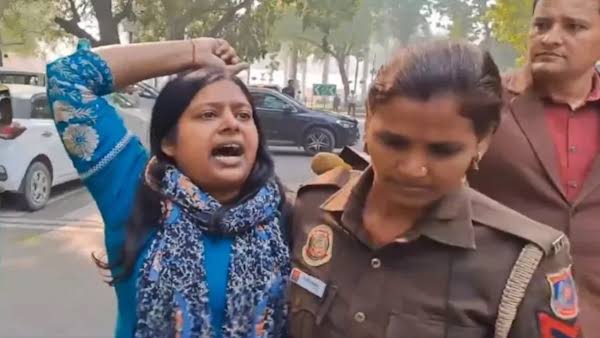Neelam, a 37-year-old woman from Haryana, was arrested by Delhi Police in connection with a security breach in Parliament. The arrest occurred after Neelam, along with Amol Shinde, protested outside the Parliament on Wednesday, during which two individuals infiltrated Lok Sabha.
Following Neelam’s arrest, her family filed a petition in the Patiala House Court in Delhi, seeking details of the First Information Report (FIR) and permission to meet her. The court has requested the Delhi Police to provide a response to the plea by issuing a notice. The case is scheduled for a hearing on Monday, December 18.
Neelam, residing in a paying guest accommodation in Hisar and preparing for competitive exams, had engaged in various agitations, including the farmers’ movement, according to her family members.
The protest involved slogans and the release of colored gas from canisters outside the Parliament premises. Neelam and Amol Shinde faced charges under the Unlawful Activities (Prevention) Act, an anti-terror law, along with sections of the Indian Penal Code, related to the Parliament security breach.
Along with Neelam, Sagar Sharma, Manoranjan D, and Amol Shinde were also arrested and charged with Anti-terror offenses. Concerns about openness are evident in Neelam’s family’s court case, which requests access to the FIR and authorisation to meet her. The incident makes clear how difficult it is to strike a balance between public safety and the freedom of protest. The court’s upcoming hearing on December 18 will likely address these concerns and determine the course of legal proceedings for Neelam and the others involved.
The case prompts significant inquiries about the essence of protest, legal charges under national security laws, and consequences for individuals engaged in peaceful demonstrations as the legal process unfolds.

